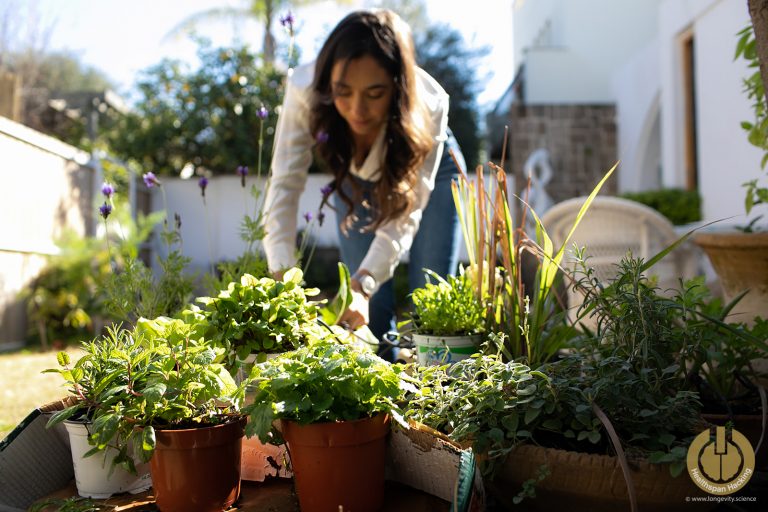In places like Equador, Armenia and the Himalayas, a lot more people live beyond one hundred than in places like New York, London, or Paris . . .Not many of us can up and move to Ecuador. But we can incorporate small lifestyle changes in order to make our environment more compatible to extending our lifespan.
Is your environment slowly but inexorably robbing you of your future years? What can you do to turn things around? Read on to find out . . .
Human longevity is determined by two factors . . .
- Genetics
- Environment
In this article, we focus on the second of those factors. We include lifestyle factors within the definition of environment. We’ll discover how important environment is to longevity and what you can do to make your environment as compatible to anti-aging as possible.
During the 19th century, humankind made huge strides in terms of the availability of food and clean drinking water, along with improved living conditions and access to medical care and the reduced exposure to disease. As a result, the lifespan of humans improved. The current average lifespan for people living in developed countries in 82.3 years.
 You will find more infographics at Statista
You will find more infographics at Statista
Where We Live Matters
It is interesting to note, however, that there are an inordinate amount of super agers, over the age of 100, who live in environments that can be best described as pristine. In places like Equador, Armenia and the Himalayas, a lot more people live beyond one hundred than in places like New York, London, or Paris. The fresh air, clean flowing water, low stress levels and simple, non-materialistic lifestyles have undoubtedly extended the lives of these people.
A recent study that was published in the International Journal of Environmental Research and Public Health backs up these observations. The researchers studied data about the deaths of around 145,000 people living in Washington State in the USA. It was found that people who lived in an environment that supports healthy aging were more likely to live to a hundred years of age. (1) (2) (3)
Study author Rajan Bhardwaj, a second-year WSU medical student, concluded that . . .
Our study adds to the growing body of evidence that social and environmental factors contribute significantly to longevity, has estimated that heritable factors only explain about 20 to 35% of an individual’s chances of reaching centenarian age.
It was found that mixed age communities were very beneficial to living longer. Bhardwaj says . . .
These findings indicate that mixed-age communities are very beneficial for everyone involved. They also support the big push in growing urban centers toward making streets more walkable, which makes exercise more accessible to older adults and makes it easier for them to access medical care and grocery stores.
Twin Studies Show That Environment Matters
The effect of environment on lifespan vs genetic disposition is also shown by the example of identical twins who grow up in different environments. In many cases, the environment has been seen to play a significant part in determining the lifespan of the individual. Those twins who live in a calmer, more rural and more mixed age group environments tend to live longer. (4)
Not many of us can up and move to Ecuador. But we can incorporate small lifestyle changes in order to make our environment more compatible to extending our lifespan. Those small changes add up to have a significant cumulative effect which will help us to delay the onset of chronic illness.
How to Optimize Your Environment for Longevity
The following environmental factors have been shown to have a positive impact on longevity:

- Be sociable across age groups – having meaningful friendships with people of all ages is a key to healthy living and longevity. Strive to mix with younger and older people, getting to know them on more than a surface level.
- Breath fresh air – if you have the choice, move to an area that is amog free and where clean air permeates. If not, make the effort to escape to the mountains as often as possible, where you can breath that beautiful fresh air deep into your lungs.
- Drink pure filtered water – aim to take in half a gallon of water daily. Investing in a water filter or purifier will help you ingest that health giving H2O without the associated toxins.
- Volunteer – volunteering has a direct relationship with happiness and, not surprisingly, the happier we are, the longer we tend to live. The joy of giving, whether it is our time or our material possessions, brings us more joy than the actual act of giving. So, look for opportunities to get involved with local volunteer work in your community.
- Reduce your stress levels – use such methods as exercise, mindful meditation, listening to music, taking walks on the beach and journaling to reduce your levels of stress and anxiety.
References:

